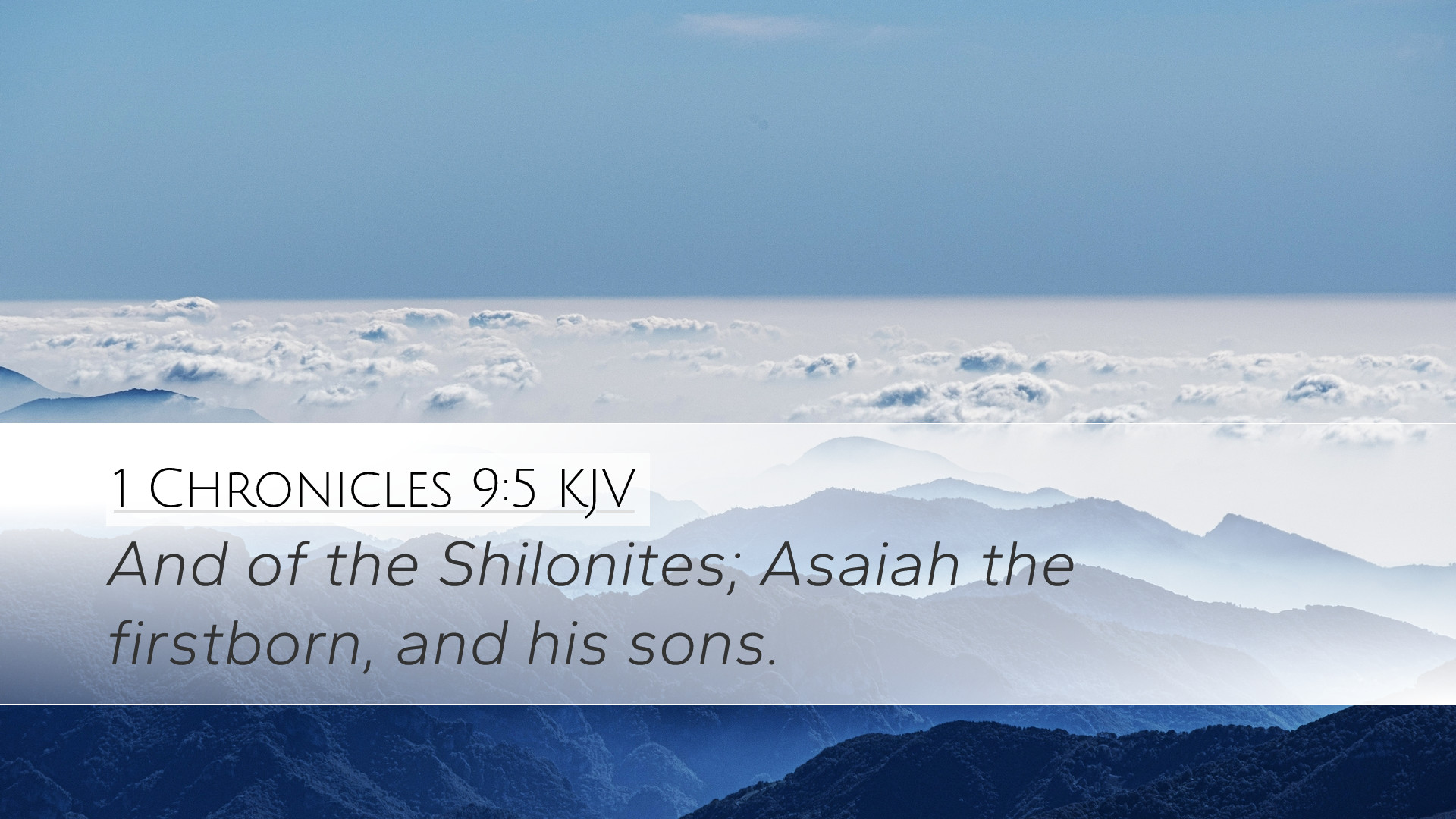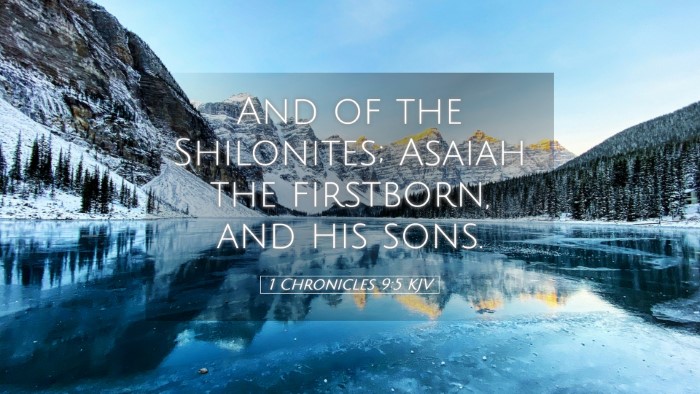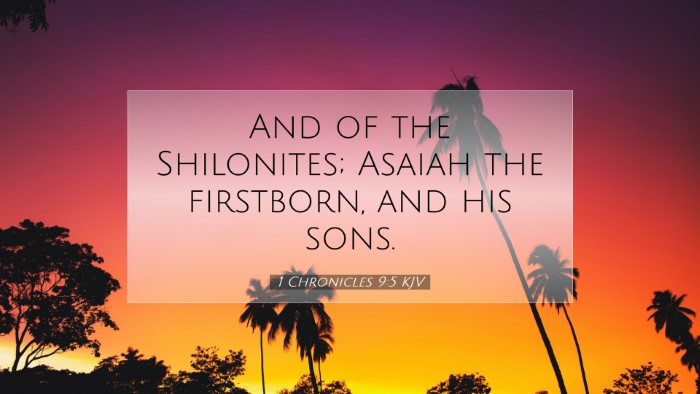Commentary on 1 Chronicles 9:5
Verse: "And of the Shilonites; Asaiah the firstborn, and his sons." (1 Chronicles 9:5)
Introduction
The genealogical records found in 1 Chronicles serve a crucial purpose by establishing the covenant faithfulness of God to His people through historical lineage. This particular verse, while seemingly straightforward, opens up avenues for exploration regarding the Shilonites, their role in Israelite society, and the importance of genealogies.
Contextual Analysis
The ninth chapter of 1 Chronicles focuses on the returning exiles after Babylonian captivity. It provides a register of those who returned to Jerusalem, emphasizing the significance of cultural and religious identity. This verse mentions families, notably the Shilonites, indicating their prominence among the returned Israelites.
Significance of the Shilonites
Matthew Henry emphasizes the Shilonites as a group with a notable heritage, pointing out their name derives from Shiloh, the ancient city where the tabernacle was located. This link to Shiloh symbolizes a continuity of worship and remembrance of God’s covenant with Israel. The mention of Asaiah as the firstborn suggests a familial leadership within this group, echoing themes of responsibility and legacy.
Examination of Leadership
Albert Barnes highlights the significance of naming Asaiah as the firstborn. In biblical contexts, the firstborn often carried both privilege and responsibility. This establishes not only a leadership role among contemporaries but also a spiritual legacy that points toward future generations.
The Role of Genealogy
Adam Clarke provides insight into the cultural and religious importance of genealogy during biblical times. The preservation of family lines was essential for maintaining tribal identity and spiritual heritage. In a post-exilic context, restoring family connections became vital for the community’s restoration and reintegration into the covenant community.
Theological Implications
This single verse invites us to reflect on God’s faithfulness through generations. Each mentioned name in these genealogies represents not just a family, but a living testament to God’s unwavering promise to His people. The inclusion of specific families like the Shilonites highlights God's intention to preserve a remnant who would continue to worship and serve Him.
Continuity of God's Promise
The reference to the lineage of Asaiah within the Shilonites signifies God's promise to fulfill His covenant with Israel despite their past transgressions and exile. Matthew Henry reiterates that God remains invested in history and His people, even when they stray. This provides a comforting assurance to present-day believers of God's enduring faithfulness.
Implications for Modern Believers
For pastors and theologians, this verse serves as a reminder of the importance of recognizing our spiritual heritage and the impact of our familial and community ties. Albert Barnes encourages contemporary Christians to honor their spiritual ancestry and to understand the role of each believer in the body of Christ.
Conclusion
The genealogical records in 1 Chronicles, including 1 Chronicles 9:5, are not merely lists of names but rich testimonies of faith, identity, and continuity. They remind Christians of the grace of God that accompanies every generation and calls us to live in a manner that honors our spiritual heritage. As we reflect on the lives of those mentioned, we can draw inspiration and strength to fulfill our calling as heirs of the promise.
Call to Reflection: Consider the significance of your spiritual lineage. How can understanding your heritage help you in your faith journey today?


